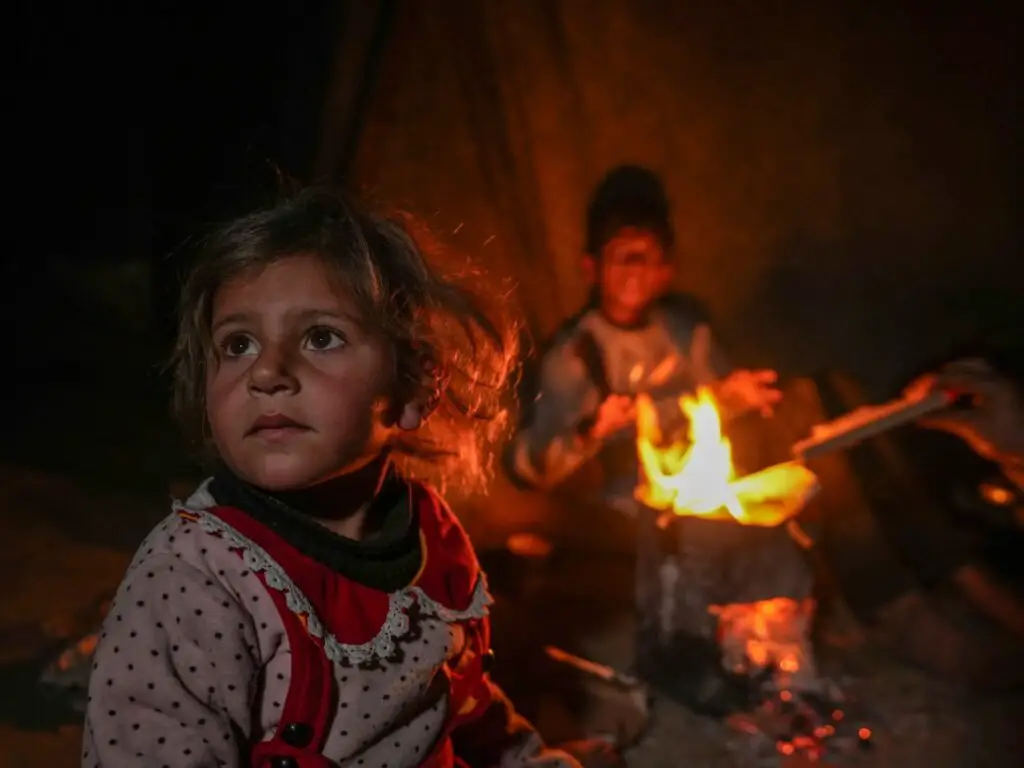According to the United Nations Children’s Fund, an estimated 473 million, or more than one in six, children live in conflict zones worldwide.
UNICEF’s statement came on Saturday as conflict continues to rage around the world, including in the Gaza Strip, Sudan and Ukraine.
In Israel devastating war against Gaza in particular, at least 17,492 children were reportedly killed in the nearly 15-month conflict that has reduced much of the enclave to rubble.
“By almost every measure, 2024 has been one of the worst years on record for children in conflict UNICEF“UNICEF’s story – both in terms of the number of children affected and the scale of the impact on their lives,” said UNICEF Executive Director Catherine Russell.
According to Russell, a child growing up in a conflict zone is more likely to miss school, be malnourished or be forced to leave home compared to a child living in places without conflict, according to Russell.
“This cannot be the new normal. “We cannot allow a generation of children to become collateral damage of the world’s uncontrolled wars,” the director said.
The proportion of children living in conflict zones has doubled – from about 10 percent in the 1990s to nearly 19 percent today, according to UNICEF.
According to the report, by the end of 2023, 47.2 million children were displaced due to conflict and violence.
Trends for 2024 point to a further increase in displacement as various conflicts have intensified, including in Haiti, Lebanon, Myanmar, the Palestinian Territories and Sudan.
Additionally, the United Nations confirmed a record 32,990 serious violations against 22,557 children in the latest available data from 2023 – the highest number since UN Security Council-ordered monitoring began, UNICEF said.
Overall, there has been an upward trend in the number of serious violations and a further increase is expected this year as “thousands of children have been killed and injured in Gaza in Ukraine“said the agency.
Sexual violence against children has increased, their education has been compromised, child malnutrition rates have increased and armed conflict has had a greater impact on children’s mental health, UNICEF also reported.
“The world is failing these children. Looking ahead to 2025, we must do more to turn the tide and save and improve the lives of children,” Russell said.
Children in Gaza are “cold, sick, traumatized”
In Gaza – where the Israeli military killed more women and children last year than in any other recent conflict, Oxfam reported in September – the ongoing war is a “nightmare” for children, UNICEF communications specialist Rosalia Bollen said last week at a media briefing.
“Children in Gaza are cold, sick and traumatized,” Bollen said last Friday.
About 96 percent of women and children in Gaza cannot meet their basic food needs, she said, lamenting the lack of aid reaching Gaza’s children.
“Gaza must be one of the most heartbreaking places on earth for humanitarian workers. Every attempt, no matter how small, to save a child’s life is wiped out by the terrible devastation,” said Bollen.
“Children have been at the center of this nightmare for more than 14 months.”
Bollen said many children in the besieged enclave lacked winter clothing, had to scavenge through garbage for provisions and were plagued by illness.
She called for the use of political capital and diplomatic influence to expedite the evacuation of injured children and their parents to leave the Gaza Strip and seek medical care in East Jerusalem or elsewhere.
“This war should haunt every one of us. “Gaza’s children can’t wait,” she urged.





